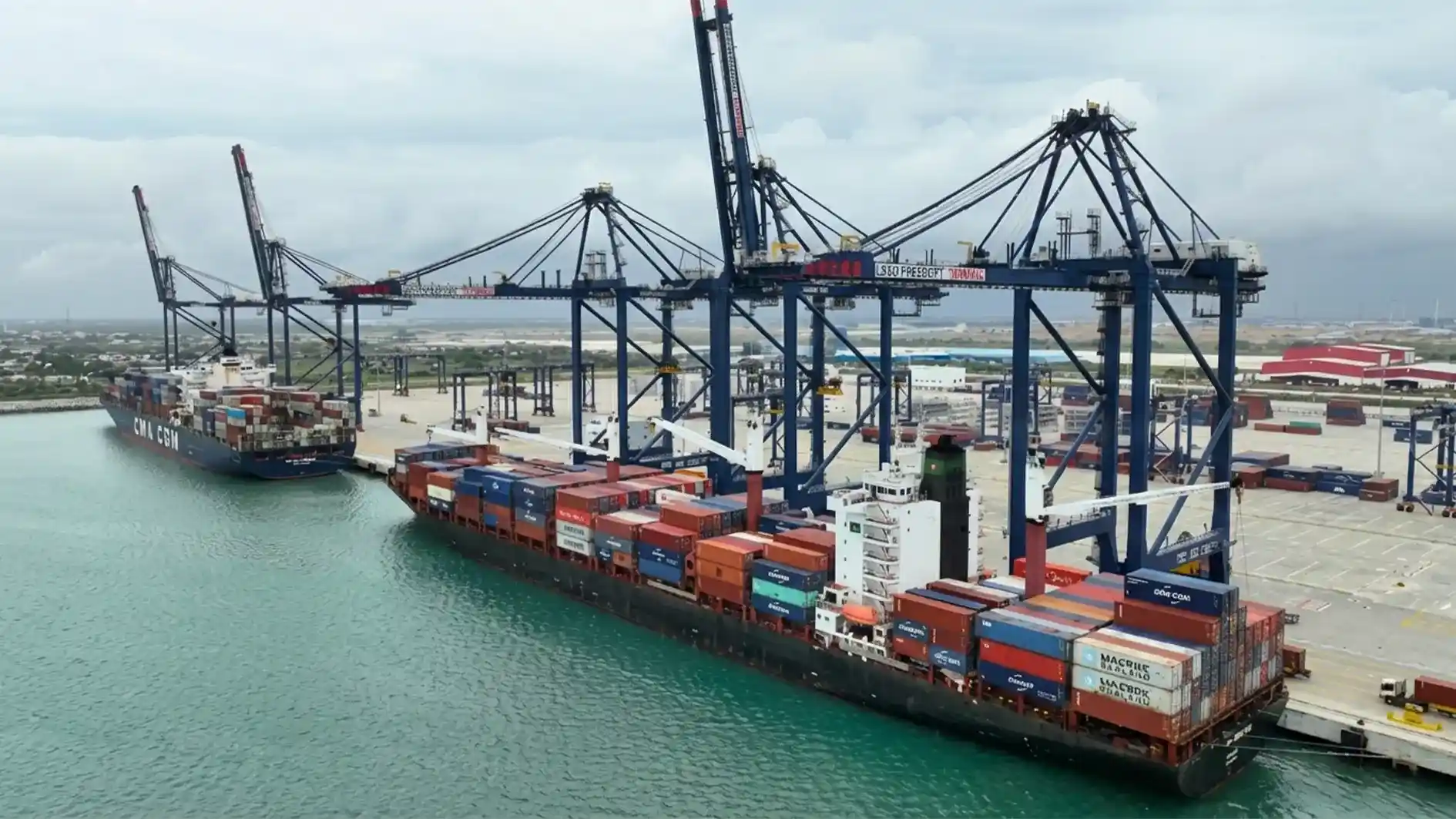In a bold and transformative move, Pakistan is positioning itself at the forefront of the global digital finance revolution. The government’s recent initiative to regulate cryptocurrency, spearheaded by Bilal bin Saqib—the newly appointed Chief Advisor to the Finance Minister for the Pakistan Crypto Council—marks a significant turning point in the nation’s economic landscape. This strategic decision aims to unlock the potential of digital assets, stimulate innovation, and attract substantial foreign investment, thus laying the groundwork for a vibrant fintech ecosystem.
A Vision for a Digital Financial Future
Bilal bin Saqib, during a high-profile interview with Bloomberg, underscored the importance of embracing digital assets in today’s rapidly evolving financial landscape. “Pakistan is done sitting on the sidelines,” he declared, emphasizing that regulatory clarity and a pro-business legal framework are essential for the country to emerge as a leader in blockchain-powered finance. With an estimated 15 to 20 million Pakistanis already holding cryptocurrencies and billions of dollars circulating in transactions, the move to formalize and regulate this burgeoning market is not just timely—it is imperative for sustainable economic growth.
Pakistan’s low operational costs, combined with its strategic geographic location, provide it with a competitive edge over traditional crypto hubs like Dubai and Singapore. This initiative is designed to foster a fertile ground for startups and established financial entities alike, ensuring that the nation benefits from both domestic innovation and international capital influx.
The Role of Regulatory Sandboxes
One of the cornerstone strategies of Pakistan’s approach is the implementation of regulatory sandboxes. These controlled environments will allow startups and financial institutions to experiment with blockchain and cryptocurrency technologies under close regulatory supervision. The concept behind a regulatory sandbox is to encourage innovation without compromising financial security and consumer protection. By providing a safe space for experimentation, Pakistan aims to attract tech-savvy entrepreneurs and fintech companies that can test new products and services without facing the full brunt of regulatory penalties during the trial phase.
This approach is already yielding positive results in other parts of the world. For instance, nations like the United Kingdom and Singapore have successfully used regulatory sandboxes to nurture the growth of their fintech sectors, and Pakistan’s adoption of a similar framework underscores its commitment to creating an investor-friendly environment. The ultimate goal is to ensure that regulatory frameworks are both dynamic and responsive to technological advancements, thus avoiding the pitfalls of outdated legislation that could stifle innovation.
Economic Implications and Opportunities
The economic benefits of embracing cryptocurrency and blockchain technology extend far beyond the fintech sector. At its core, this regulatory shift represents a broader commitment to integrating digital technologies into traditional economic frameworks. Some of the key opportunities that arise from this initiative include:
- Increased Foreign Investment: By establishing clear regulations, Pakistan is set to become a magnet for foreign capital. International investors are more likely to enter markets where there is legal certainty and robust oversight, reducing the risks associated with regulatory arbitrage.
- Job Creation and Skills Development: The growth of a digital finance ecosystem will undoubtedly lead to the creation of high-skilled jobs. From blockchain developers and cybersecurity experts to financial analysts specializing in digital assets, the demand for expertise in these areas is expected to surge.
- Economic Diversification: As the world moves away from traditional banking and fiat currencies, countries that adapt to the new digital financial order will benefit from economic diversification. For Pakistan, this means reduced dependency on conventional economic sectors and an opportunity to be at the forefront of a global technological revolution.
- Enhanced Financial Inclusion: With a significant portion of the Pakistani population already engaged in cryptocurrency transactions, formalizing the market can lead to improved financial inclusion. Regulatory clarity will enable more citizens to participate in the formal economy, facilitating better access to financial services.
Global Trends in Cryptocurrency Regulation
Pakistan’s proactive approach mirrors a broader global trend where governments are increasingly recognizing the need for clear and forward-thinking regulatory frameworks for digital assets. Countries like the United States, the United Kingdom, and members of the European Union are all actively engaged in refining their regulatory policies to accommodate the unique challenges and opportunities presented by cryptocurrencies.
For instance, the United States has witnessed a dynamic interplay between state and federal regulations, with various jurisdictions experimenting with different approaches to balance innovation and investor protection. Similarly, the European Union has been working on comprehensive guidelines aimed at harmonizing cryptocurrency regulations across its member states, ensuring that the digital asset market remains secure while fostering growth.
These international efforts underscore a universal understanding: digital assets are here to stay, and governments must adapt to leverage their potential. In this context, Pakistan’s move is not an isolated experiment but part of a broader shift towards integrating traditional financial systems with modern digital technologies.
Learning from International Best Practices
To ensure the success of its regulatory framework, Pakistan is engaging with international regulators from key markets such as the United Arab Emirates (UAE), Nigeria, and Türkiye. These strategic engagements are designed to incorporate best practices and lessons learned from other regions that have navigated the complexities of cryptocurrency regulation.
- United Arab Emirates: Known for its ambitious digital transformation initiatives, the UAE has positioned itself as a leader in the adoption of blockchain technology. Pakistani regulators are looking to model some of their policies after the UAE’s successful blend of innovation and strict regulatory oversight, which has enabled it to attract a host of fintech startups and digital asset investors.
- Nigeria: As one of Africa’s largest economies, Nigeria has seen rapid growth in cryptocurrency adoption despite regulatory uncertainties. By engaging with Nigerian regulators, Pakistan aims to understand the challenges and opportunities associated with high-volume, high-velocity digital transactions, particularly in a market with significant informal economic activity.
- Türkiye: Türkiye’s dynamic fintech scene and proactive regulatory measures offer another valuable template. The Turkish approach, which balances investor protection with the promotion of innovative financial products, provides a compelling model for Pakistan as it seeks to navigate similar challenges.
These international collaborations are critical. They ensure that Pakistan’s regulatory framework is not only robust but also adaptive, capable of responding to the fast-paced evolution of technology and market dynamics.
Bilateral and Multilateral Benefits
The regulatory reform is expected to bring about several bilateral and multilateral benefits. For bilateral relations, a transparent and investor-friendly crypto environment could enhance Pakistan’s economic ties with other countries, especially those with a significant stake in digital finance. This initiative might pave the way for bilateral agreements in technology, finance, and trade, further boosting Pakistan’s international profile.
On a multilateral level, Pakistan’s move could influence regional economic integration. As neighboring countries observe Pakistan’s progress, there may be a ripple effect, encouraging a more harmonized approach to digital finance regulation across South Asia and beyond. In this context, Pakistan could emerge as a thought leader and a benchmark for other emerging markets grappling with the challenges of digital transformation.
The U.S. Perspective: A Turning Point in Global Attitudes
Interestingly, Bilal bin Saqib also noted the impact of U.S. President Trump’s pro-crypto stance on the industry. Although Trump’s administration is now a chapter in history, his earlier advocacy for blockchain technology and digital assets resonated on a global scale, influencing how policymakers around the world perceive the potential of cryptocurrencies. His pro-crypto rhetoric helped create an environment in which digital assets were seen not merely as speculative instruments but as legitimate components of the global financial system.
The reverberations of that stance are still felt today, as policymakers in various countries—including Pakistan—recognize the importance of fostering a regulatory environment that supports digital innovation while safeguarding economic stability. By drawing lessons from these U.S. policy shifts, Pakistan is reinforcing its commitment to joining the ranks of nations that are at the forefront of digital financial innovation.
Addressing Potential Challenges
While the prospects are undoubtedly exciting, the path forward is not without its challenges. The regulatory landscape for cryptocurrencies is notoriously complex, and Pakistan will need to address several key issues to ensure the success of its initiative:
- Security Concerns: With the increasing prevalence of cyberattacks and fraud in the digital realm, establishing robust cybersecurity measures is imperative. Regulatory frameworks must incorporate stringent security protocols to protect investors and maintain market integrity.
- Consumer Protection: As with any financial system, safeguarding the interests of consumers is paramount. Pakistan’s regulatory approach will need to include mechanisms for dispute resolution, clear guidelines for investor rights, and measures to prevent market manipulation.
- Integration with Traditional Finance: The transition from conventional banking systems to a digital asset framework is a complex process. Ensuring seamless integration between these two worlds will require coordinated efforts across multiple government agencies and financial institutions.
- Market Volatility: Cryptocurrencies are known for their price volatility. Policymakers must devise strategies to mitigate the economic risks associated with sudden market fluctuations, which can have broader implications for economic stability.
- Global Coordination: Given the borderless nature of digital assets, regulatory frameworks must be designed with an international perspective in mind. Pakistan’s collaboration with global regulators is a step in the right direction, but continuous dialogue and coordination will be essential to navigate the rapidly evolving global landscape.
The Broader Impact on Pakistan’s Economy
The regulatory move is expected to have a profound impact on Pakistan’s overall economic trajectory. Historically, the country’s economy has been characterized by a reliance on traditional sectors such as agriculture, textiles, and manufacturing. However, in recent years, there has been a growing recognition of the need to diversify and modernize the economic base. Embracing digital finance is a crucial part of this transformation.
The formalization of the cryptocurrency market is likely to stimulate a range of ancillary industries. For example, legal services specializing in digital asset regulation, IT security firms, and financial advisory companies will all find new opportunities in this expanding ecosystem. Additionally, academic institutions and training centers may develop specialized curricula to prepare the next generation of professionals for careers in digital finance, thereby enhancing the overall skill set of the Pakistani workforce.
Moreover, increased foreign investment in the crypto sector could have positive spillover effects on other parts of the economy. With more capital flowing into the country, there could be an improvement in infrastructure, technology adoption, and overall business confidence. This influx of investment might also lead to the development of ancillary projects such as smart cities and digital innovation hubs, further reinforcing Pakistan’s reputation as a forward-thinking economy.
The Role of Technology and Innovation
At the heart of this regulatory initiative is a deep commitment to technological innovation. The emergence of blockchain technology has already begun to redefine how financial transactions are conducted globally, offering unprecedented levels of transparency, security, and efficiency. Pakistan’s embrace of this technology is not just about keeping pace with global trends—it is about setting a benchmark for innovation in the region.
Startups and tech companies are likely to be at the forefront of this revolution. With the government’s support through initiatives like regulatory sandboxes, these companies will have the opportunity to experiment with decentralized finance (DeFi) models, smart contracts, and other blockchain-driven innovations that have the potential to streamline financial processes and reduce transaction costs.
Furthermore, the integration of blockchain technology into public administration could enhance transparency in government operations. From tracking public spending to managing land records, the applications of blockchain extend well beyond the financial sector. This holistic approach to embracing digital transformation can serve as a catalyst for broader institutional reforms, ultimately contributing to improved governance and public trust.
Looking Ahead: Future Prospects and Strategic Implications
As Pakistan embarks on this transformative journey, several key strategic implications emerge. Firstly, the move to regulate cryptocurrency is a clear signal that Pakistan is ready to compete on the global stage as a hub for digital finance. By aligning itself with international best practices and leveraging its inherent economic strengths, Pakistan is well-positioned to attract a new wave of investment that could spur unprecedented economic growth.
Secondly, the initiative sets the stage for a more diversified and resilient economy. By reducing reliance on traditional sectors and embracing modern technologies, Pakistan can better withstand global economic shocks and position itself as a leader in the digital age. This proactive approach is particularly significant given the challenges posed by rapidly evolving global markets and geopolitical uncertainties.
Lastly, the success of this initiative could have a profound impact on the region. As neighboring countries observe Pakistan’s progress in developing a robust digital asset ecosystem, there is potential for a domino effect that could lead to regional regulatory harmonization and increased cross-border cooperation in digital finance. This would not only enhance the economic stability of the region but also promote innovation and growth on a larger scale.
Conclusion
Pakistan’s decision to regulate cryptocurrency for foreign investment is more than just a policy shift—it is a visionary step towards a digitally empowered future. Under the leadership of Bilal bin Saqib and the Pakistan Crypto Council, the country is poised to transform its economic landscape by harnessing the potential of blockchain and digital assets. With an emphasis on regulatory clarity, innovation through sandbox environments, and international cooperation, Pakistan is setting the stage for a new era of financial inclusion, economic diversification, and technological advancement.
While challenges remain—ranging from cybersecurity and consumer protection to the integration of digital and traditional financial systems—the opportunities far outweigh the risks. As global trends continue to favor digital transformation, Pakistan’s bold initiative not only positions it as a key player in the digital finance space but also provides a blueprint for other emerging markets to follow.
With its strategic vision and commitment to innovation, Pakistan is embarking on a journey that could redefine its economic future, attract unprecedented levels of foreign investment, and ultimately establish the nation as a leading hub in the global cryptocurrency landscape. The coming years will be crucial in determining how effectively the country can leverage these opportunities to create a more inclusive, dynamic, and resilient economy—one that stands at the cutting edge of the digital revolution.
In summary, Pakistan’s move to regulate cryptocurrency is a forward-thinking initiative that resonates with global trends and sets the stage for a vibrant future in digital finance. By fostering innovation, ensuring regulatory clarity, and engaging with international best practices, the nation is not only safeguarding its economic interests but also paving the way for a comprehensive digital transformation that could benefit millions of its citizens. As the world watches, Pakistan’s journey into the realm of digital assets promises to be an inspiring example of how emerging markets can harness technology to drive economic growth and global competitiveness.
Ready to take your career to the next level? Join our dynamic courses: ACCA, HESI A2, ATI TEAS 7 , HESI EXIT , NCLEX – RN and NCLEX – PN, Financial Literacy!🌟 Dive into a world of opportunities and empower yourself for success. Explore more at Serrari Ed and start your exciting journey today! ✨
photo source: Google
By: Montel Kamau
Serrari Financial Analyst
21st March, 2025
Article, Financial and News Disclaimer
The Value of a Financial Advisor
While this article offers valuable insights, it is essential to recognize that personal finance can be highly complex and unique to each individual. A financial advisor provides professional expertise and personalized guidance to help you make well-informed decisions tailored to your specific circumstances and goals.
Beyond offering knowledge, a financial advisor serves as a trusted partner to help you stay disciplined, avoid common pitfalls, and remain focused on your long-term objectives. Their perspective and experience can complement your own efforts, enhancing your financial well-being and ensuring a more confident approach to managing your finances.
Disclaimer: This article is for informational purposes only and does not constitute financial advice. Readers are encouraged to consult a licensed financial advisor to obtain guidance specific to their financial situation.
Article and News Disclaimer
The information provided on www.serrarigroup.com is for general informational purposes only. While we strive to keep the information up to date and accurate, we make no representations or warranties of any kind, express or implied, about the completeness, accuracy, reliability, suitability, or availability with respect to the website or the information, products, services, or related graphics contained on the website for any purpose. Any reliance you place on such information is therefore strictly at your own risk.
www.serrarigroup.com is not responsible for any errors or omissions, or for the results obtained from the use of this information. All information on the website is provided on an as-is basis, with no guarantee of completeness, accuracy, timeliness, or of the results obtained from the use of this information, and without warranty of any kind, express or implied, including but not limited to warranties of performance, merchantability, and fitness for a particular purpose.
In no event will www.serrarigroup.com be liable to you or anyone else for any decision made or action taken in reliance on the information provided on the website or for any consequential, special, or similar damages, even if advised of the possibility of such damages.
The articles, news, and information presented on www.serrarigroup.com reflect the opinions of the respective authors and contributors and do not necessarily represent the views of the website or its management. Any views or opinions expressed are solely those of the individual authors and do not represent the website's views or opinions as a whole.
The content on www.serrarigroup.com may include links to external websites, which are provided for convenience and informational purposes only. We have no control over the nature, content, and availability of those sites. The inclusion of any links does not necessarily imply a recommendation or endorsement of the views expressed within them.
Every effort is made to keep the website up and running smoothly. However, www.serrarigroup.com takes no responsibility for, and will not be liable for, the website being temporarily unavailable due to technical issues beyond our control.
Please note that laws, regulations, and information can change rapidly, and we advise you to conduct further research and seek professional advice when necessary.
By using www.serrarigroup.com, you agree to this disclaimer and its terms. If you do not agree with this disclaimer, please do not use the website.
www.serrarigroup.com, reserves the right to update, modify, or remove any part of this disclaimer without prior notice. It is your responsibility to review this disclaimer periodically for changes.
Serrari Group 2025
















